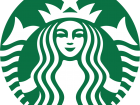For The Fear of Complexity. Will We Ever Understand French Wine?
To truly understand the bizarre nature of French wine labeling and categorizing, you’d be better off with a law degree than a diploma in oenology from the University of Bourgogne in Dijon, France.
Unlike the United States, what the French can “name” a wine is controlled strictly Appellation Controllee — that have been on the books for hundreds of years. In America we buy Chardonnay. In France, it’s white burgundy. Here we by cabernet, merlot or other big reds. In France, you buy Bordeaux. Ultimately, it’s the “place” you grow the grapes the determines what goes on the label. But if that’s not wacky enough, if you happen to want to grow Syrah, for example, in Bordeaux, you can’t put Bordeaux on the label. I realize this is oversimplification, but at the heart of these laws is the restrictive nature it places on winemakers and chateaus. Some old world fanatics will argue that this is good. It guarantees adherence or compliance with century old traditions. It will ideally guarantee the wine will speak for itself through its terroir. And if a winemaker decides to buck tradition his wine will be forced to be labeled as a vin de pays — which is a legal term that is relegated to the cheapest table wines.
Suffice to say that the “labeling” helps the guide the consumer and perhaps protect him/her from fraud — or simply mediocre wine. But does it really? I mean can you imagine that if a similar law was instilled upon fruit growers? You can’t call that a pineapple unless it’s grown on the island of Lanai in Hawaii. Or even worse, if you want to paint in Southern France, you must use oils. If you use acrylics, water color or pastels you can’t say you’re from Provence. Can’t a wine speak for itself through its characteristics and taste? It should. And shouldn’t a winemaker, or an artist, be allowed to express themselves through their technique, the colors they wish to use and the media which to paint.
Finally, France appears to be making strides to better ways for which to market its wine. And it couldn’t come out a better time. French wine exports are lagging behind new world heroes from Australia, the United States and South America. The Government of France has urged European growers to adapt to changing consumer demand in order to better compete with emerging third countries and in new markets. In fact, the French government subsidizes the wine sector. For example, during 1999, EU subsidies allocated to the French wine sector amounted to $34 million and were allocated to wine growers for restructuring and renovating vineyards.
Back to the issue of labeling. Perhaps easing the strict laws and making it easier for the rest of the world to understand exactly what they get when buying French wine is taking the right step. And maybe that’s why for the first time in years the French wine industry is making headway in creating a new category of French wine.. Maybe a French Cepage will grab center stage better than a Cinq Cepage.
To be sure, the classic Premier Cru etc. wines of Bordeaux and Burgundy surely will continue to remain classic and command top dollars — especially during great vintages, but France can’t live in the old world forever when it comes to winemaking, labeling and marketing. A new generation of French winemakers and growers perhaps can create the next classics — without compromising its rich history in wine. After all, France is the largest producer of wine in ALL the world.



